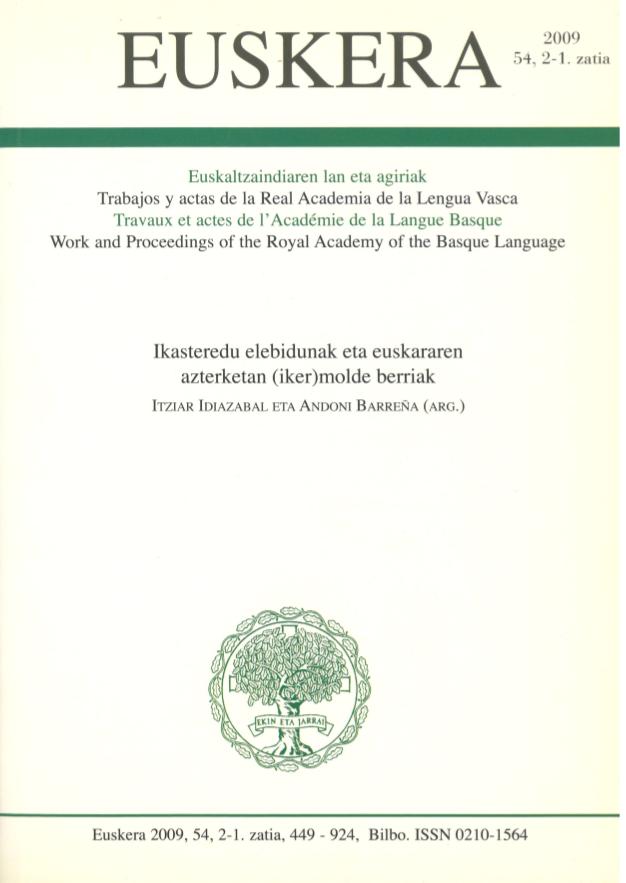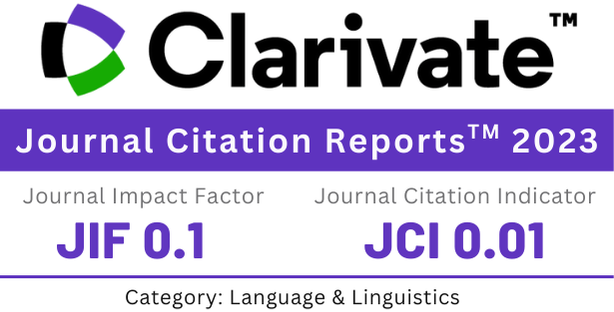"Omen"en zalantzak argitu nahian
DOI:
https://doi.org/10.59866/eia.v2i54.250Keywords:
meaning, said, what is said, implicature, propositional contentAbstract
The aim of this paper is to define the meaning and explain the use of the particle ‘Omen’ in Basque. We shall attempt to argue that the speaker, by the utterance of ‘omen’, expresses that a proposition is said or asserted by another speaker, or either heard or read by another speaker. That is its meaning, and we shall attempt to prove that the content of uncertainty that grammar books and dictionaries have associated with ‘omen’ is not part of its meaning, but the implicature that the speaker can produced by making an utterance with ‘ Omen’. We shall also see that equivalents such as ‘parece (que)’ or ‘il paraît (que) (‘seems that’) assigned to ‘omen’ are not its equivalent, but the equivalent of the particle ‘bide’. To do so, we must cast aside some of the items proposed concerning ‘omen’ by grammar books and dictionaries published up to now, and describe in detail some others. We shall start from the main distinctions of semantics and pragmatics, in order to help us purify what has been stated concerning ‘omen’.








